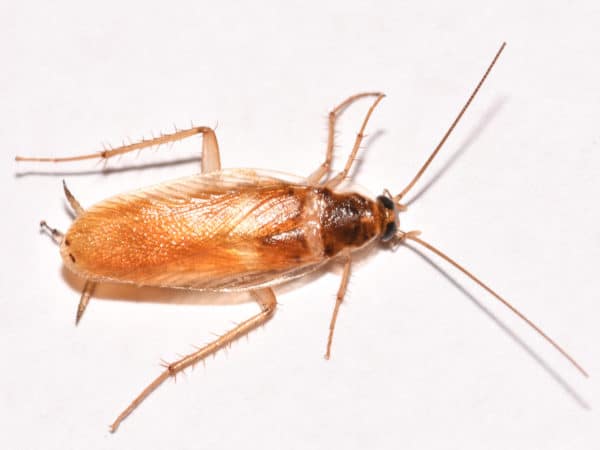READY TO GET STARTED?
REQUEST A FREE ESTIMATE
Fill out the form below or call (888) 466-7849 for a free, no-obligation estimate.

While they aren’t one of the most common cockroach species that are talked about, the brown banded cockroach (Supella longipalpa) can cause problematic infestations like their German and American counterparts. These roaches are one of the smallest species of invasive cockroaches with adults reaching lengths of about 11 to 14 mm. They are found throughout the United States. Brown banded cockroaches are named because of the light brown or tan double bands found on their bodies. These bands are found on the wings of adults and the bodies of the young. They are often confused with German cockroaches.
What attracts cockroaches is pretty simple: food, shelter, and water. These cockroaches need warm temperatures to survive and will often make their way into your home in search of food and shelter. They most often hitch a ride inside on infested furniture (where they often leave their egg casings), grocery items, deliveries, food products, and electronics. Once inside, they are commonly found in living areas where they have access to food supplies and hiding places. They tend to stay in drier locations that are at higher elevations, such as the upper cabinets in kitchens and bathrooms.
When you spot a cockroach in the house one of the first questions people ask is “are cockroaches dangerous?” The answer to that is yes, they can be. Brown banded roaches will feed on anything from trash and food crumbs to nylon stockings and glue. They are known to carry and spread 33 different bacteria, 6 different parasitic worms, and 7 kinds of human pathogens. They pick up these germs on the spines of their legs and bodies and spread them to any surface they touch. They are also known to trigger allergies and asthma in humans.
Once roaches have taken up residence in your home they can proliferate rapidly. They can be quite difficult to eliminate once they are there. The best way to handle roaches of any species is to prevent them from getting indoors in the first place. Check out these cockroach prevention tips:
Cockroaches: A Possible Allergy Trigger
Why Are Mosquitoes Inside My Home?
Mouse vs Rat: Can You Spot The Difference?
Categories